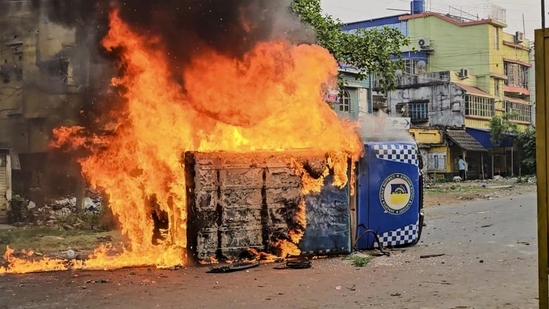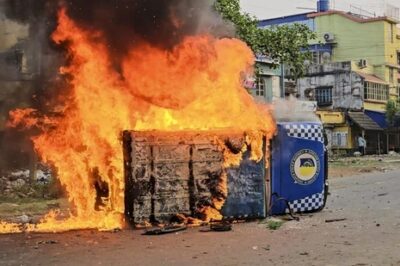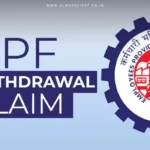
Unrest in Murshidabad Sparks Alarming Displacement
West Bengal’s Murshidabad district witnessed serious communal unrest earlier this week following protests over the recently amended Waqf Act. The situation took a grim turn when violence erupted during a demonstration, leaving three people dead and prompting widespread panic in the area. In the wake of the clashes, senior BJP leader and Leader of Opposition in the West Bengal Assembly, Suvendu Adhikari, claimed that over 400 Hindus were forced to flee their homes fearing targeted violence.
Adhikari, while visiting the disturbed Dhulian area on Friday, alleged that Islamist groups had threatened Hindu families, resulting in a mass exodus to neighboring districts like Malda. The BJP leader blamed the ruling Trinamool Congress (TMC) government for failing to control the situation and accused them of appeasement politics that embolden extremist elements.
Tensions Rise Over Waqf Act Amendments
The violence stemmed from widespread opposition to the Centre’s amendments to the Waqf Act. The changes, which allow non-Muslims to be appointed to Waqf Boards and alter the jurisdiction of Waqf Tribunals, have drawn sharp criticism from many Islamic organizations. The protesters in Murshidabad were reportedly mobilized against what they saw as an infringement on religious autonomy.
While the protests initially began as peaceful demonstrations, they escalated quickly, leading to violent clashes with police forces. Protesters reportedly vandalized vehicles, pelted stones, and disrupted public order. The state police struggled to contain the situation, and tensions spread across different parts of the district.
BJP Demands Central Intervention
Suvendu Adhikari strongly condemned the violence and demanded a probe by the National Investigation Agency (NIA), accusing the state government of allowing communal elements to run unchecked. He also demanded that the Election Commission take cognizance of the situation, particularly targeting Chief Minister Mamata Banerjee for what he described as her “appeasement-driven” politics.
Adhikari stated that the 400 displaced Hindus had taken shelter in safer areas and were in urgent need of protection and support. He emphasized the need for central paramilitary forces to be deployed to ensure the safe return of the displaced families and to restore normalcy in the region.
State Government’s Response and High Court’s Intervention
Chief Minister Mamata Banerjee responded by calling for peace and blamed the BJP for stoking communal flames. She clarified that her government does not endorse the amended Waqf Act and has no plans to implement it in West Bengal. Banerjee urged people of all communities to maintain harmony and not fall prey to political provocation.
However, in a significant move, the Calcutta High Court ordered the deployment of Central Armed Police Forces (CAPF) in Murshidabad to prevent further unrest. The court emphasized the importance of impartial intervention to restore law and order, especially in areas showing signs of deep communal divide.
Communal Tensions and Political Accusations
The political blame game continued with both BJP and TMC trading barbs. While the BJP held the TMC government accountable for creating a fragile communal atmosphere, the ruling party dismissed these allegations, insisting that the BJP was politicizing a sensitive issue for electoral gain.
The BJP maintained that the root of the violence lay in unchecked radicalism that had taken hold in certain regions under TMC’s watch. Adhikari also claimed that police officials in the area were reluctant to act decisively against the violent mobs, fearing political backlash.
Impact on the Ground: Families in Fear
On the ground, the fear among affected families is palpable. According to Adhikari, many of the displaced families were unwilling to return home until they received assurance of safety. Visuals from Dhulian showed deserted houses and shops, with many areas under tight police watch.
Local residents told visiting journalists that the atmosphere in the area had changed drastically in recent days. Some claimed they were threatened and warned to leave or face consequences, while others expressed helplessness in the face of ongoing tensions.
A Broader Crisis in Communal Harmony
The Murshidabad violence is not just a localized incident – it reflects broader concerns over rising communal tensions in West Bengal. The issue of Waqf property management, while administrative at its core, has become a lightning rod for political and religious controversy. The communal nature of the violence and the exodus of over 400 people raise serious questions about the state’s preparedness to deal with such crises.
Political observers warn that unless both state and central governments work together to defuse tensions and protect vulnerable communities, similar outbreaks could occur elsewhere, especially with upcoming elections adding fuel to the fire.
Conclusion: A Call for Peace and Accountability
As West Bengal grapples with the aftermath of the Murshidabad violence, the need for peace, accountability, and timely action has never been greater. The exodus of 400 Hindus, as claimed by Suvendu Adhikari, is a troubling sign of deteriorating communal trust. With the state government pushing back against the Centre’s Waqf reforms and the BJP calling for federal intervention, the situation remains tense.
It is now up to law enforcement, the judiciary, and political leaders across the spectrum to ensure that order is restored, families can return to their homes safely, and that justice is delivered – without deepening existing communal rifts.









































Leave a Reply